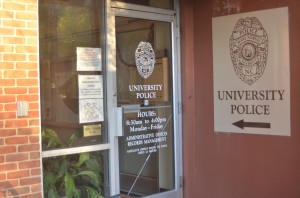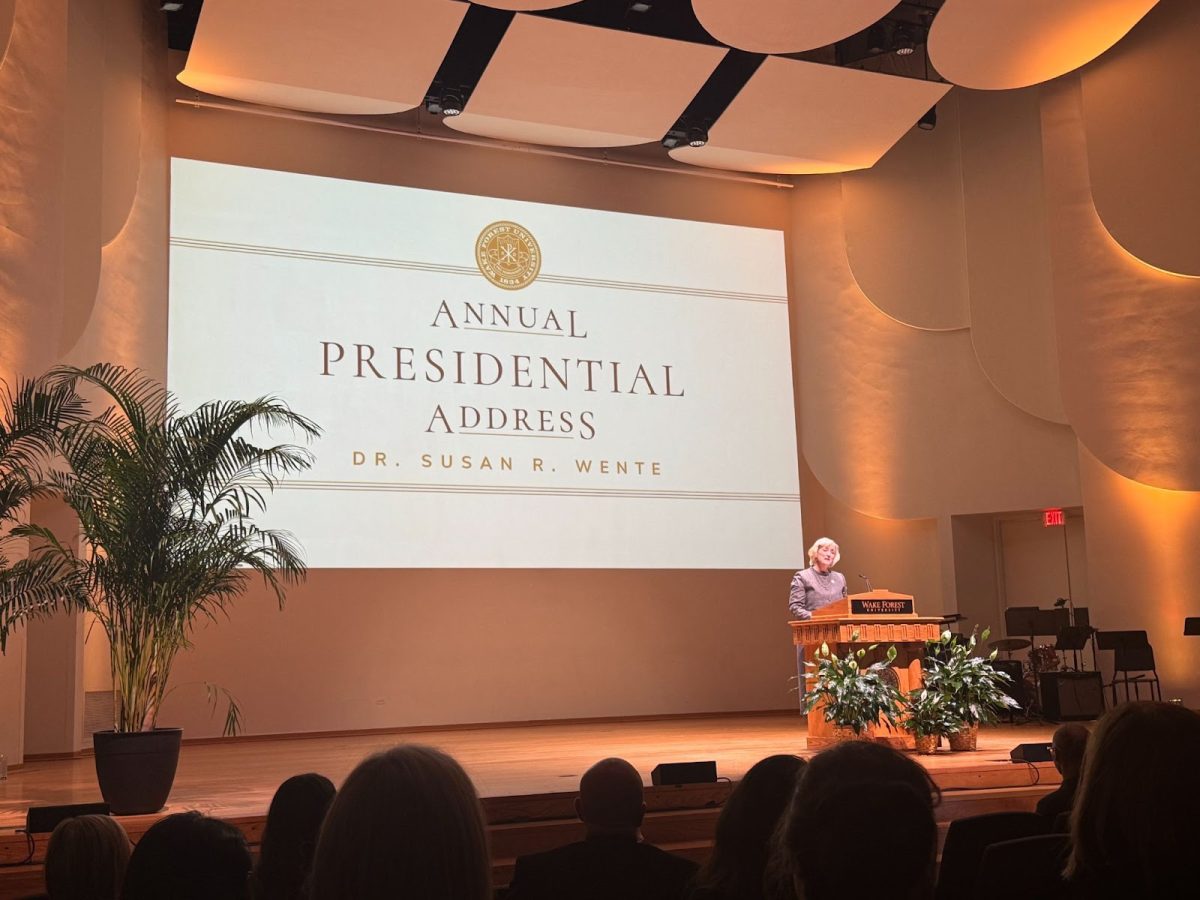Wake Forest University is growing, but its police force is not.
As new buildings pop up around campus and the student population continues to increase, University Police is struggling to maintain a full staff. Currently, the department is missing two full-time officers, and employs neither a captain nor a major, both of which are critical leadership positions.
Although the university has already started the hiring process, a source close to the department said no decisions are expected until late November or December at the earliest, after which the new employees must undergo a lengthy eight to 10 month training program.
Students have already felt the effects of having an understaffed campus police force. One senior resident advisor, who has requested to remain anonymous due to a conflict of interests, has, on multiple occasions, waited over 30 minutes for University Police to respond to his calls.
“Response times are not just bad; they’re terrible,” the senior said. “At this point, I’d rather call the Winston-Salem Police Department than University Police.”
Yet the department’s staffing issues are more than just a local problem.
A recent survey by Campus Safety Magazine found that 46 percent of public safety and emergency management departments at colleges are understaffed.
Nationally, the gap between the number of civilians living in an area and the number of officers has grown, according to a Department of Justice report of local police departments conducted in 2013. This means there are fewer officers per person in most communities, Wake Forest included.
Even the Winston-Salem Police Department is facing staff shortages.
“We’re doing more with less nowadays,” said Capt. Natoshia James of the WSPD. “We don’t grow as fast as the community grows, so we’re doing what we can.”
The need for more officers is apparent in the crime rates at Wake Forest. According to the university’s 2014 crime report, the number of on-campus motor vehicle break-ins more than quadrupled last year, and rates of alcohol and drug use have continued to rise.
Staffing shortages hinder not only the police force’s ability to react to crime, but also its ability to prevent it, according to Ron Wright, a professor of law at Wake Forest. “Maintaining a full police force can make a big difference in crime prevention, especially as a campus expands in size,” he said.
Wake Forest has expanded significantly in the past decade. Three new residence halls have been constructed in the past five years to keep up with a student population that has grown 19 out of the past 20 years to reach nearly 7,800, including graduate students
The growth isn’t stopping, either; the university’s ambitious 2009 Master Plan details proposals for the addition of more on-campus academic buildings and residential facilities.
So why is Wake Forest’s University Police unable to expand appropriately? According to Wright, filling positions at police departments is more difficult than a generation ago.
“The job is getting harder all the time,” Wright said. “We have high expectations of officers nowadays. They’re expected to be well-trained, well-balanced, more diverse, more community oriented and more qualified.”
Officer pay plays a role, as well. Despite these higher standards for local police officers, the national average starting salary for new hires was virtually the same in 2013 as it was in 2003, according to the Department of Justice. When adjusted for inflation, the average salary remained at $44,400.
Furthermore, the operating costs of maintaining a sufficient force have risen by 14 percent since 2003 when adjusting for inflation, making it difficult for local forces like Wake Forest’s University Police to adequately adapt to growing student populations.
As the search for new members carries on, the department is making major management restructuring changes to maximize the efficiency of the current staff, according to police Chief Regina Lawson.
“We sometimes have to reallocate resources or add part-time security personnel to deal with this transition,” Lawson said. “There’s always more to improve on, but we’re working hard to grow and improve security on campus.”
Recent efforts include the addition of cameras in residence halls on South Campus and the introduction of the LiveSafe app, which aims to give students faster, direct access to police and other safety resources both on and off campus.
University Police is also working with administration officials from the university to make advancements in campus security.
“I’m optimistic we’ll be fully staffed soon,” Lawson said. “[Hiring] can be a slow process, but it’s the most important part of building our team.”








